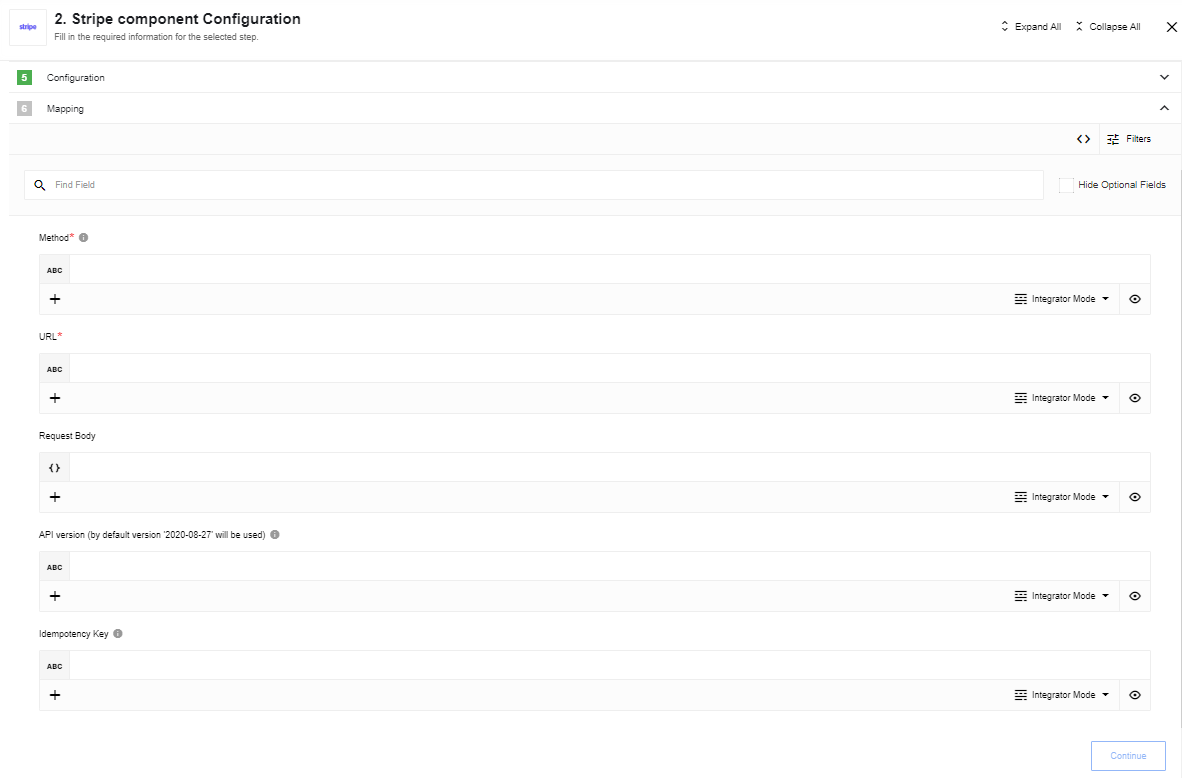Stripe
The Stripe component provides an integrations pathway with the Stripe online payment system.
This component, developed specifically to run on Squiz Integrations, works with Stripe in integration flows to provide the technical, fraud prevention, and banking infrastructure required to operate on-line payment systems.
Credentials
This component uses the following credentials configuration fields:
- API Key
-
A required string value. Read the Stripe Documentation for more information about Stripe API Keys.
Triggers
This component has no trigger functions. This means it will not be accessible to select as a first component during the integration flow design.
Actions
Make raw request
Executes a custom request.
Configuration Fields
- Don’t throw error on 404 or 402 Response
-
An optional boolean value. When selected this option will cause the system to not treat
404and402HTTP responses as errors. The default is false.
Input metadata

- URL
-
A required string value. This value is the resource path, relative to https://api.stripe.com.
- Method
-
A required string value. One of the following HTTP methods:
-
GET
-
POST
-
PUT
-
PATCH
-
DELETE.
-
- Request Body
-
An optional object value. The body of the request.
- API Version
-
An optional string value. The API version that is in use. If no value is present, version
2020-08-27will be used by default. Find your version at Stripe versioning or the Stripe API-changelog. - Idempotency Key
-
An optional string value. A unique value that the server uses to recognize subsequent retries of the same request (UUID is recommended). Stripe Idempotent requests.
Output metadata
- Status Code
-
A required number value. HTTP status code of the response.
- HTTP headers
-
A required object value. HTTP headers of the response.
- Response Body
-
An optional object value. HTTP response body.
|
Read the Stripe security guide carefully: https://stripe.com/docs/security/guide. For security purposes, you should consider using the component only for actions that do not involve the processing, transmission, or storage of card data. |